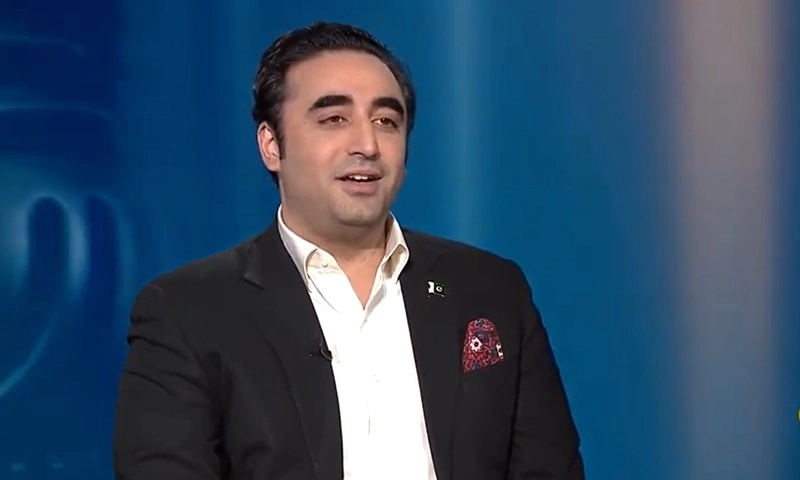- Web Desk
- Feb 19, 2026
Bilawal urges Trump to bring India to negotiating table with Pakistan
-

- Web Desk
- Jun 06, 2025

WASHINGTON: Head of high-level Pakistani Parliamentary delegation and Pakistan People’s Party Bilawal Bhutto Zardari has urged US President Donald Trump to play a proactive role in bringing India to the negotiating table for comprehensive talks with Pakistan.
In an interview with AFP, Bilawal Bhutto Zardari said Pakistan is willing to discuss terrorism, but emphasized that Kashmir must be central to any dialogue. He warned that India is setting a dangerous precedent in South Asia by justifying war in response to terrorist incidents.
He said the fate of the 1.7 billion people and two great nations cannot be left to faceless, non-state actors, nor dictated by India’s new normal.
In its analysis, AFP said President Donald Trump has repeatedly spoken of preventing nuclear war and said the United States has offered to facilitate talks between the two sides at a neutral location.
Also read: Bilawal says India wants hegemony, refuses to hold dialogue
Here is the English translation of the provided Urdu text in a clear and professional news style:
‘India Creating ‘New Abnormal’ in Region’
Meanwhile, during a press conference by the Pakistani diplomatic delegation in Washington, Senator Sherry Rehman said India is crafting a new strategic “new abnormal” in South Asia — one that departs completely from conventional policy frameworks.
She said India is striving to become a 19th-century-style regional power, which is fostering a system of permanent tension rather than peace. While regional and global powers typically maintain stability through peace, not conflict, India appears to be breaking away from that norm.
Sherry Rehman stated that India’s role has become contradictory — it seeks security but refuses to act as a provider of peace. Yet, she stressed, peace remains the only path to ensuring sustainable security and stability.
She pointed out that since 2019, there has been no military or civilian contact between India and Pakistan at any level. Referring to the recent 87-hour standoff, she warned that it had dangerously approached the nuclear threshold, escalating at a pace that should alarm the world.
She further cautioned that India’s policy of weaponising water sets a dangerous precedent. India, she said, is weaponising not only water but also words, which shrinks the space for dialogue. In today’s digital world, turning language into a weapon has become one of the greatest threats to peace.
The PPP leader criticised Indian Prime Minister Narendra Modi’s rhetoric of offering youth a choice between “bread or bullets,” calling it a reflection of an irresponsible state policy. She added this was not a random remark but a calculated strategy aimed at destabilising any ceasefire.
She warned that the unfolding crisis in South Asia would not remain regional; its repercussions would be felt globally. Constant tension and instability, she said, are not a strategy — they are a serious threat to international peace.
Sherry Rehman emphasised that sustainable peace is only possible through a structured and consistent negotiation framework — one that is principled, not ad hoc. She accused India of deliberately obstructing dialogue and peace by turning language and narrative into tools of strategic warfare.
Referring to the Indian Defence Minister’s comment that “you’ve only seen the trailer,” she said such statements are pushing the region toward perpetual conflict. The world, she urged, must not wait for the “full film” — it must learn from the trailer and act in time.
She added that the recent 87-hour war was not the main event but merely a trailer — a reflection of Pakistan’s measured response. This conflict, she said, fits into India’s strategy of locking the region into a constant Bollywood-style state of tension.
She accused Indian media of suppressing peace narratives and fuelling war hysteria. Mainstream Indian TV channels, she noted, are making provocative claims such as “capturing Lahore” instead of addressing serious environmental challenges shared by both countries.
Statements about “capturing Karachi port” or “wiping Pakistan off the map,” she said, amount to open incitement, undermining informal diplomatic efforts and spreading hatred.
Sherry Rehman concluded by saying that after the conflict, Indian leadership has boxed itself into making dangerous promises it cannot fulfil. She made clear that during the escalation, Pakistan’s response was restricted strictly to military targets and was entirely lawful.




